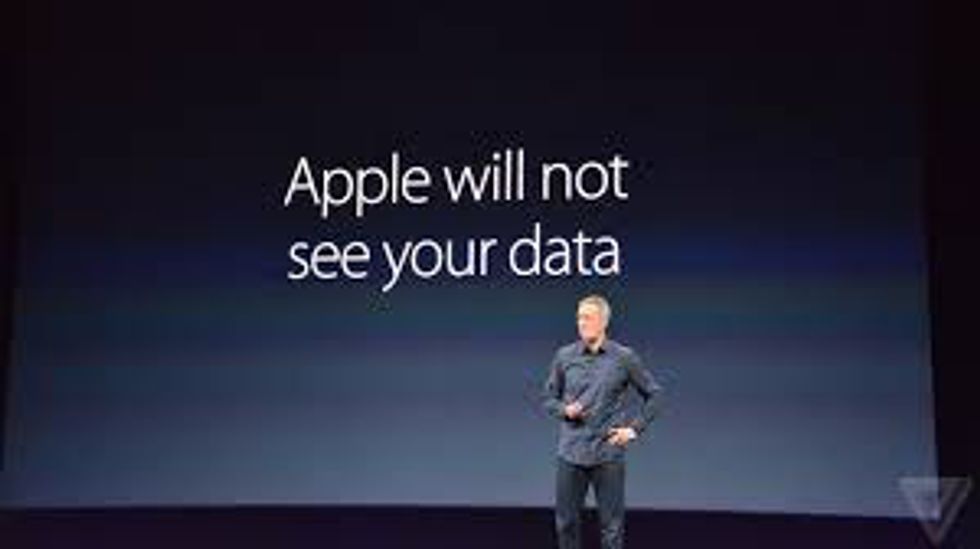On December 2 of last year, a married couple, Syed Farook and Tashfeen Malik opened fire at a holiday party, killing 14 of their coworkers and wounding 17 others. The two had apparently become radicalized with the intent to commit terror before they were engaged and before Malik immigrated to the U.S. As part of its investigation to find out if Farook and Malik were affiliated with any terror organizations, the FBI requested all available information that Apple had on the two with proper search warrants and subpoenas, to which Apple complied. Now, the FBI is demanding Apple create an operating system that currently does not exist to hack Farook’s phones recovered in the investigation. On Tuesday, U.S. District Judge Sheri Pym ordered Apple to comply with the FBI’s demands. Apple has refused and has vowed to fight this order in court. A hearing is set for March 22. Here are five reasons why every American who values his or her freedom, privacy and security should stand with Apple in this fight.
1. The technology the FBI demands does not exist.
Basically, the FBI is ordering a private company to make, or more specifically, invent a technology. One of the blessings of living in a free and open society is the potential for technological innovation. The United States and other free societies throughout history have prospered from creative individuals doing what they enjoy to create products that will produce prosperity for themselves and enjoyment for others. That’s how we got the the car, the airplane, the personal computer, and yes, even the iPhone. But, these inventions came about because people were able to pursue their own interests without someone holding a gun to their head forcing them to waste their time and money creating something that produces no value to others.
2. Apple is an innocent third party.
As such, it is reasonable to expect Apple to turn over all available information on Farook and Malik, or anyone else for that matter if issued a subpoena. However, it is completely unreasonable to expect Apple or any other company to be forced to find a way to access information from one of its products because that product happened to be purchased by a criminal. This is almost like ordering an auto manufacturer to infringe on its customers privacy by create a tracking device for its automobiles because one of its cars was used by a bank robber.
3. The dangerous power of precedent.
The FBI claims they only want this for Farook’s phone. Do they really think we’re that dumb? I would love to believe that the FBI would only require this for the phones of terrorists and murderers; but who’s to say that if Apple loses this court case and has to create a backdoor that can access all of its customers’ phones that the FBI will not use this randomly for suspects of lesser crimes?
Do you really want FBI agents having complete access to your phone because you typed in the wrong words in google while researching terrorism in the Middle East for that political science paper? There is no law on the books limiting this type of subpoena to certain types of criminals like terrorists and until Congress passes one, all we have to go on is court precedent. When it comes to privacy rulings of this nature, there never is “just this one time.”
4. This poses a danger to consumers.
In the digital age we live in, we are forced to give out private information a lot more than in the past. But, the reason people make online transactions, communicate online, and text without batting an eye is because of the trust consumers have in the companies with whom they have service. Competition keeps people honest. In order to guarantee customers satisfaction and privacy, companies like Apple put limits on even how much private information they allow themselves to access. If the FBI forces Apple to create a backdoor into its customers’ phones, the knowledge that Apple possesses that technology will damage the company’s reputation with future customers.
According to digital analyst Jason Bloomberg, “Apple isn’t simply promising to keep its customers’ secrets. It’s promising to prevent itself from ever knowing its customers’ secrets – and then it’s selling that promise to its customers as a feature of its products. . . A brand, after all, is the promise to customers that the quality and features of products will live up to customer expectations.”
But, so what? Apple’s loaded. How much can it possibly hurt Tim Cook?
While that’s true and the effects on management may be negligible, smaller companies that are not rich would be affected by this. But even ignoring the business side, let’s look at this from the customer’s perspective. Would you rather buy a smartphone with or without the assurance that your personal messages and data will be safe from snooping, financial theft, and potential incrimination?
5. The security risk.
Technology is like a weapon. Once it’s invented, there’s no guarantee that it won’t fall into the wrong hands. While we may trust Apple and the FBI to use discretion when using an operating system like this, once the technology is out there, who’s to say it won’t fall into the hands of hackers, thieves, foreign spies, terrorists…ISIS anyone?
Farook and Malik are dead. Farook’s phone may or may not contain information that links him to terror organizations and even if it does, considering he’s already been shot, its benefits to the San Bernardino case would be minimal. But, it’s very easy to see how this kind of slippery slope could not only threaten Americans’ privacy, but put them at even more risk in the name of national security, defeating the purpose of demanding Apple create the new technology in the first place.

















